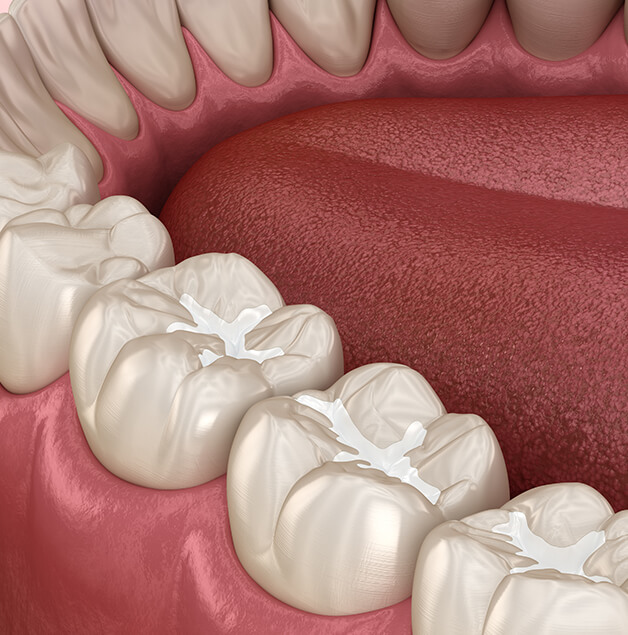Tooth-Colored Dental Fillings in Johnson City, TN
Tooth decay is a common issue. In fact, over 90% of American adults will develop at least one cavity in their lifetime. Blue Plum Dental provides custom tooth-colored dental fillings that are designed to repair teeth that have been affected by tooth decay and restore your smile beautifully. Contact our office today to learn more about our restorative services and schedule your next visit with us!
Contact Us
What are the advantages of tooth-colored fillings over silver?
Tooth-colored fillings, also known as composite fillings, offer several benefits over silver (amalgam) fillings. They blend in with your natural tooth color, making them nearly invisible—perfect for front teeth or visible areas. Composite fillings also bond directly to the tooth, which helps preserve more of your natural tooth structure. Plus, they don’t expand or contract with temperature changes as much as metal fillings, which can reduce the risk of cracks or fractures over time.

How long do composite fillings last?
Composite fillings typically last up to 10 years or longer, depending on their location in the mouth, your oral hygiene habits, and how much pressure the filled tooth handles (like chewing or grinding). With good care—brushing twice a day, flossing daily, and keeping up with dental visits—composite fillings can last even longer. If a filling becomes worn or damaged, it can usually be repaired or replaced quickly and comfortably.
The Process of Getting a Filling
When you arrive for your treatment, we will begin by numbing the tooth and surrounding area so you remain comfortable throughout the appointment. Once you are numb, your dentist carefully removes the decayed or fractured portion of the tooth using precise dental instruments. The inside of the tooth is then cleaned and disinfected to prevent bacteria from being sealed inside.
The filling material is placed in layers, shaped to match your bite, and then hardened with a special curing light. After polishing the surface for a smooth finish, we will check your bite and make adjustments if needed. Most patients are able to eat and return to normal activities as soon as the numbness wears off.

What are the symptoms of tooth decay?
Tooth decay can start off with few or no symptoms, but as it progresses, you might notice signs like tooth sensitivity to hot, cold, or sweet foods, visible holes or pits in your teeth, white or brown spots, or ongoing toothaches. In some cases, you might also experience bad breath or a bad taste in your mouth. If you notice any of these symptoms, it’s important to schedule a dental exam as soon as possible.

Can cavities be reversed?
In their earliest stage—before a hole forms—cavities can sometimes be reversed through good oral hygiene and fluoride treatments. This stage is known as enamel demineralization. Fluoride helps strengthen the enamel and stop decay from getting worse. However, once a cavity forms, it cannot be reversed and must be treated with a filling or another restorative option. Early detection is key to preventing more serious damage.
Contact Us
